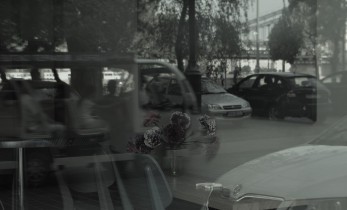Greater than 2 minutes, my friend!
A Dummy’s Guide to Swiss German
Grüezi mitenand! [Hello everyone!]
Anyone flying into Switzerland and expecting to be greeted in German by a customs officer may at first think they’ve ended up in the wrong country upon hearing the local language.
We’re told that Switzerland has four official languages: German (64%), French (21%), Italian (7%) and Romansh (<1%), but this isn’t quite the case. What people actually speak here is Swiss German (a range of Alemannic dialects), rather than German German (or ‘High German’) and they differ quite a lot.
Swiss German differs from city to city – and from valley to valley – too. One of the noticeable differences between High German and Swiss German is in pronunciation.
For example the High German ‘ung’ is pronounced as ‘ig’, ‘ei’ as ‘ie’, ‘n’s are often omitted and if you seem to hear people with throat infections, you’re probably just mistaking it for the coarse ‘ch’ which the Swiss say instead of ‘k’! As can be seen in these common examples:
High German: Swiss German: English:
Kuchenkasten Chüchichäschtli Kitchen cupboard
Verzweigung Verzwiegig Intersection
Lebensgefährlich Läbesgföhrlech Deadly
Not only does Swiss German have its own pronunciation, but it also has its own vocabulary and grammar – for instance, there is no simple past tense or genitive case in Swiss German, although it does have its own set of articles etc.
Swiss German sounds very pleasing to the ear and somehow more ‘natural’ than High German, perhaps due to the sing-song nature of the dialect’s intonation. But this is very much my personal opinion!
Thankfully – for those of us more familiar with High German – Swiss German tends to be just a spoken language. All print media and written correspondence are in High German (excluding informal text messages or emails etc.). Or more accurately: Swiss Standard German – which is pretty much the same as High German, except for a few peculiarities.
Although Swiss Standard German is supposed to be like High German, there are quite a few interesting differences. The Swiss tend to like to make themselves different to their German neighbours in any way possible, and this is especially true with their written language.
Where perfectly adequate words exist in High German, the Swiss tend towards their French influences, saying quirky hybrids such as ‘Merci vielmal‘, (thanks very much).
You won’t find any Fahrräder (bicycles) in Switzerland for example; the Swiss prefer to cycle on Velos – which originates from French (except with its own unique Swiss German pronunciation).
Even where French words are used in High German, the Swiss opt to be awkward and choose another French synonym to use! A Friseur is what you’d ask for when you’d like a haircut in Germany, but in Switzerland you’d ask for a Coiffure.
I, myself, am very much still beginning my journey to speak Swiss German with confidence. How about you? Which Swiss dialect to you like the best?
For those of you who would like to learn more about Swiss German, I can recommend some online resources that may help:
Learning resources:
http://www.eldrid.ch/swgerman.htm (Highly recommended)
Swiss German media:
www.wilmaa.com (TV and Radio within Switzerland)
www.drs3.ch (Radio)
www.videoportal.sf.tv (Swiss TV)





Hoi Lewis 🙂
Thanks so much for this post! Are you living in CH so? I was born in ZH and grew up in Aargau, so my Swiss Dialect or Mundart is mostly Aargauisch. All regions have their own specific dialect and they are all very interessting. The dialect I love most is Bärndütsch, but I think it is because of my familyroots, as my ancestors are from Emmental (yes, I can die for all kind of cheese, but mostly for the Appenzeller stinky one!).
Here a little contribution for further reading and listening:
link to edimuster.ch
link to youtube.com
link to youtube.com
link to als.wikipedia.org
link to srf.ch
link to mediadesk.uzh.ch
http://www.20min.ch/digital/news/story/Gueuerbsi–Ghueues-oder-Buetschgi–21406953
link to idiotikon.ch
link to swissinfo.ch
Sali Marie-Claire 🙂 Thanks for adding more links – that’s really helpful. I really like Bärndütsch too, but it takes some getting used too! My favourite dialects are Bündnerdütsch and of course Züridüütsch – not the popular choice, I know! I live in Winterthur at the moment. I’ve spent some time living in Zurich as well, and I’m looking to return to the city this year.
Funny, one of the foods I love most after cheese is Bündnerfleisch
Nice to learn you life in Winti, my only family lives there, too (aunt, uncle and cousines).
This is funny because I’m kind of dating a Swiss German guy and I looked up a video on youtube on how to say greetings in Swiss German and practiced. Then I showed it to him and he said my Swiss German is terrible hahahahha
Thank you for this introduction!
I also have a link to contribute: Easy German on Youtube – a great resource for anyone learning German who wants to hear the language as it is spoken in the street – also has videos dedicated to Swiss German: link to youtube.com